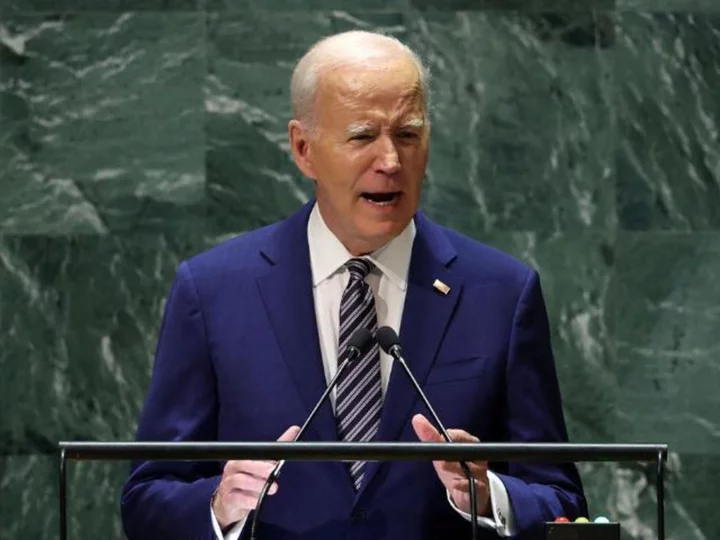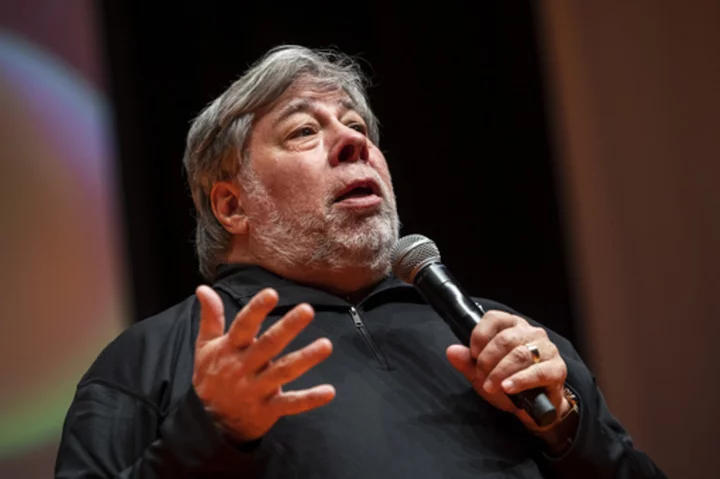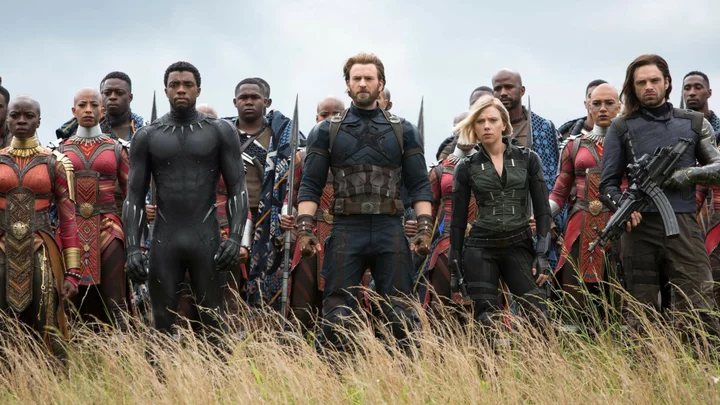President Joe Biden on Tuesday made a forceful call for the world to stand up to Russia's invasion of Ukraine, calling for leaders to stand firm in their support of President Volodymyr Zelensky and his nation as the war heads toward its second autumn.
Biden said Russian President Vladimir Putin and his armed forces are betting that the world will grow weary of supporting Ukraine and it is incumbent upon the countries in the United Nations to stand firm against Putin's aggression.
"If we allow Ukraine to be carved up, is the independence of any nation secure? I respectfully suggest the answer is no. We have to stand up to this naked aggression today and deter other would-be aggressors tomorrow," Biden said.
"That's why the United States, together with our allies and partners around the world, will continue to stand with the brave people of Ukraine as they defend their sovereignty and territorial integrity and their freedom," he added.
The annual UN talks are unfolding for the second year under the shadow of the war in Ukraine, and the conflict will remain a focus for leaders. While the UN has led on organizing humanitarian aid during the conflict, it hasn't acted as a mediator in the war. Biden is set to meet with Zelensky -- who was in the audience for Biden's speech on Tuesday -- in Washington later this week.
"For the second year in a row, this gathering -- dedicated to peaceful resolution of conflicts -- is darkened by the shadow of war. An illegal war of conquest brought without provocation against its neighbor Ukraine," Biden said.
He added, "Russia alone bears responsibility for this war. Russia alone has the power to end this war immediately. And it's Russia alone that stands in the way of peace."
Later Tuesday, in remarks to the United Nations Leaders' Reception at the New York's Metropolitan Museum of Art, he told other world leaders: "Our world stands at an inflection point, and the decisions we make now are going to determine our future for decades to come."
The president made reference to Russia, observing that the world stands poised at a moment where "basic principles like sovereignty, territorial integrity, universal human rights are being tested," and "a member the United Nations Security Council has launched a brazen and brutal attack against the people of Ukraine -- attacks that go against the very character of the United Nations."
During his speech to the General Assembly, Biden also returned to an issue that he frequently turns to in his public remarks -- the future of democracy in the world. The president has often cast the fundamental motivating issue of his presidency as democracy vs. autocracy. And one day after the president railed against his predecessor, former President Donald Trump, in a sharpened speech at a fundraiser warning that Trump was "determined to destroy democracy," Biden pressed the importance of democratic institutions.
"We will defend democracy: our best tool to meet the challenges that we face around the world. We're working to show how democracy can deliver in ways that matter to people's lives," he said, pointing to global infrastructure partnerships and investments in low and middle income countries.
The president frequently uses China as an example of that contrast. But at the UN, he sought to emphasize a more diplomatic tone regarding the American relationship with China, saying he wants competition and not conflict.
"I want to be clear and consistent: We seek to responsibly manage the competition between our countries so it does not tip into conflict. I've said we are for de-risking, not decoupling on China," he said, warning that the US will "push back on aggression."
Biden says US' future is tied to other nations
This year, the nations of the "global south" are also demanding attention from leaders. Many have watched with skepticism as the West rallies attention and funding for Ukraine while their crises go unnoticed.
Biden will meet Wednesday with Brazil's President Lula da Silva to discuss labor issues and Israel's Prime Minister Benjamin Netanyahu, with whom Biden has clashed on the country's controversial judicial reform plan.
Biden and Netanyahu, the senior official said, will "discuss a range of bilateral and regional issues focused on the shared democratic values between our two countries and a vision for a more stable and prosperous and integrated region, as well as compare notes on effectively countering and deterring Iran."
But with high-level absences from Russia, China, France, and the UK -- all permanent members of the UN Security Council -- the Biden administration will be relegated to lower-level engagements with key allies and adversaries, all while hoping to elevate the United States' views of global infrastructure, food security, democratic values, and territorial sovereignty.
Reiterating his belief that the world is at an "inflection point in history," Biden told the assembly, "As president of the United States, I understand the duty my country has to lead this critical moment."
Biden heralded his administration's efforts toward fighting the climate crisis, including investment toward clean energy, climate financing in developing countries, and steps toward the climate finance pledge outlined in the Paris Climate Agreement, though he called for additional public and private sector investment.
As the US seeks to counter the authoritarian pull of Russia and China, Biden is joining the presidents of five Central Asian nations -- Kazakhstan, Kyrgyzstan, Tajikistan, Turkmenistan, and Uzbekistan -- for the "first-ever so-called C5+1 presidential summit" on Tuesday, the first senior official said, for a discussion on regional security, trade and connectivity, climate, and reforms to improve governance and the rule of law.
"The United States seeks a more secure, more prosperous, more equitable world for all people, because we know our future is bound to yours. ... And no nation can meet the challenges of today alone," Biden said Tuesday.
Questions over UN's effectiveness
A major challenge for the Biden administration's ability to generate attention and headlines for its foreign policy goals: Forum fatigue, with the G20 meeting of world leaders, BRICs summit of developing countries, APEC gathering focused on Indo-Pacific policy, and the climate-focused COP28 conversation all happening in an unusually condensed calendar, taking some of the urgency away from the conversation happening in New York.
"There's always been a sense that when you can't get what you want from the UN, you go somewhere else," said Marti Flacks, director of the Human Rights Initiative at the Council on Strategic and International Studies. "There's more of them being led by US competitors, particularly China. And so there's a sense that they are growing in strength."
Still, Biden stressed the importance of the body in facing new challenges.
"We also recognize that to meet new challenges of our decades-old institutions and approaches, they must be updated to keep pace with the world. We have to bring in more leadership and capability that exists everywhere, especially from regions that have not always been fully included. ... We have to make sure we're delivering for people everywhere. ... That starts with the United Nations -- starts right here," he said.
There are areas where the administration acknowledges progress will remain elusive. National security adviser Jake Sullivan said he's not optimistic UN leadership and partner countries can make progress reinstating the Black Sea grain initiative, despite UN Secretary General António Guterres holding meetings on it with Zelensky and other partners New York this week.
"We know the Turks are working hard at this; Guterres is working hard at this," Sullivan told reporters. "But the Russians are not giving us a huge amount of cause for optimism at this moment."
The issue raises the broader question of UN efficacy, with Russia remaining a member of the United Nations Security Council, despite multiple demands from the council to end the war in Ukraine. Thomas-Greenfield said the US is working closely with Ukrainians to document war crimes and atrocities for "future prosecution" -- but it remains unclear when any such tribunal would take place.
In addition to strengthening institutions, Biden called on the UN to "forge new partnerships, and confront new challenges on emerging technologies such as artificial intelligence," which, he said, offers "both enormous potential and enormous peril."
"We need to be able to break the gridlock that too often stymies progress and blocks consensus on the council. We need more voices, more perspectives at the table. The United Nations must continue to preserve peace, prevent conflict, and alleviate human suffering. And we embrace nations stepping up to lead new ways to seek new breakthroughs on hard issues," he added.









